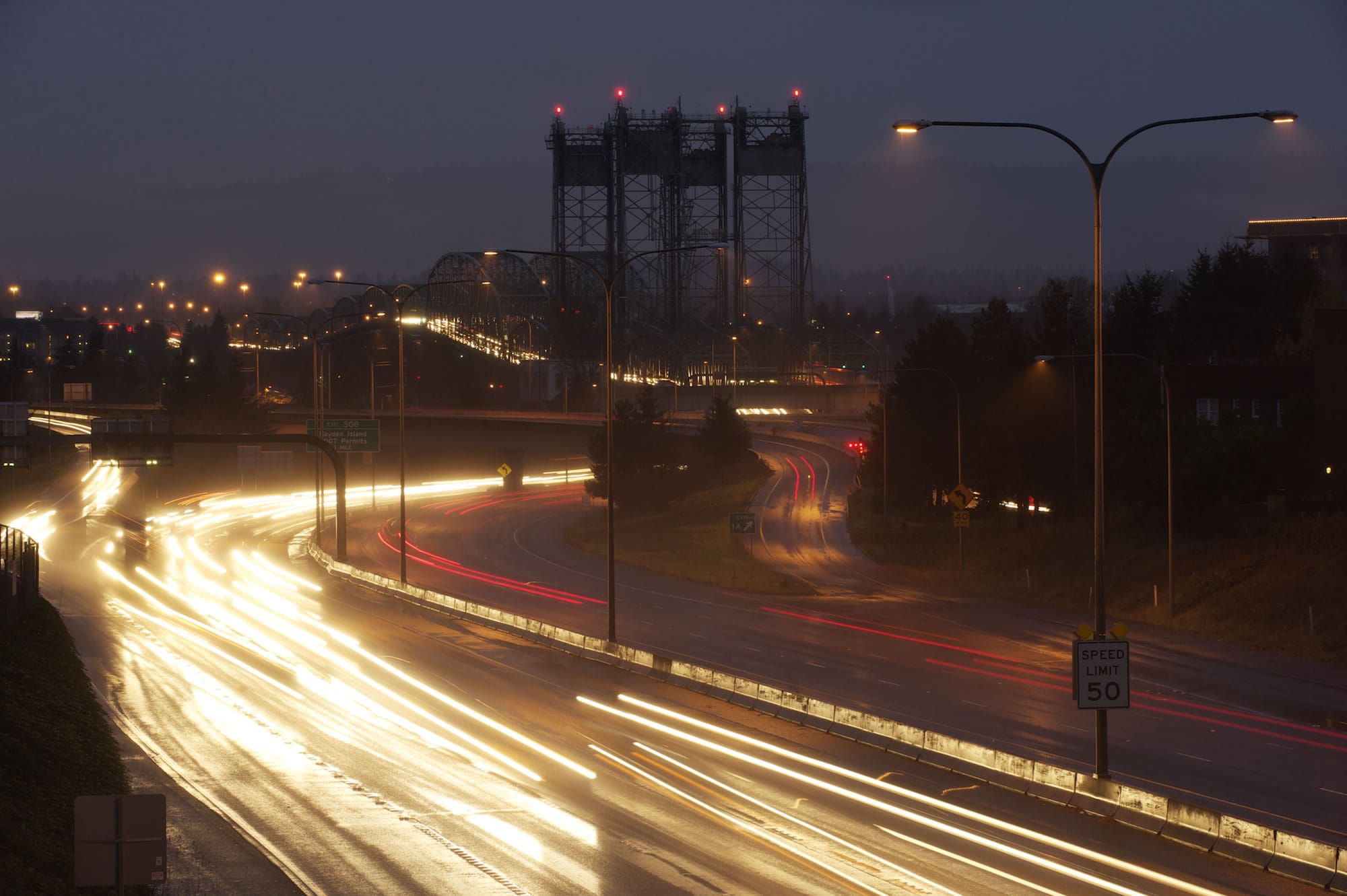CRC planning money included in compromise
Nearly $82 million for Columbia River Crossing planning is included in the compromise transportation budget reached by Democrats and Republicans in the Washington Legislature this week. That compromise also places new conditions on the CRC.
The plan requires a forensic audit of
the $3.4 billion project, which would replace the Interstate 5 Bridge between Vancouver and Portland and extend Portland’s light rail line into Vancouver. That audit must “investigate possible misuse of public funds,” according to the language of the bill.
Also under the budget proposal, most of the $82 million for CRC planning would be inaccessible until the U.S. Coast Guard approves the project’s permit. If the permit is not approved, then that money must be used toward studying a new bridge design that meets the Coast Guard’s requirements.
Supporters of the CRC say they’re confident the Coast Guard will approve a permit for the project and that a forensic audit will turn up no wrongdoing.
CRC planning money included in compromise
Nearly $82 million for Columbia River Crossing planning is included in the compromise transportation budget reached by Democrats and Republicans in the Washington Legislature this week. That compromise also places new conditions on the CRC.
The plan requires a forensic audit of
the $3.4 billion project, which would replace the Interstate 5 Bridge between Vancouver and Portland and extend Portland's light rail line into Vancouver. That audit must "investigate possible misuse of public funds," according to the language of the bill.
Also under the budget proposal, most of the $82 million for CRC planning would be inaccessible until the U.S. Coast Guard approves the project's permit. If the permit is not approved, then that money must be used toward studying a new bridge design that meets the Coast Guard's requirements.
Supporters of the CRC say they're confident the Coast Guard will approve a permit for the project and that a forensic audit will turn up no wrongdoing.
The $82 million dollars in the transportation budget is not enough to meet the CRC's goal of securing $450 million from Washington state this year to construct the bridge. Washington lawmakers also are considering a separate transportation package that would raise taxes and fees to fund many of the state's transportation needs, including that $450 million for the CRC.
-- Stevie Mathieu
The $82 million dollars in the transportation budget is not enough to meet the CRC’s goal of securing $450 million from Washington state this year to construct the bridge. Washington lawmakers also are considering a separate transportation package that would raise taxes and fees to fund many of the state’s transportation needs, including that $450 million for the CRC.
— Stevie Mathieu
OLYMPIA — Washington state lawmakers have reached an apparent deal on an $8.8 billion transportation budget that would allocate money for roadway maintenance and continue paying for existing big-ticket projects like the floating bridge across Lake Washington and replacing the Alaskan Way Viaduct tunnel.
The state House is expected to vote on the compromise two-year budget over the weekend, with the Senate likely to follow suit before the regular session is gaveled to a close on Sunday.
“There were wins and losses on both sides,” said House Transportation Committee chairwoman Judy Clibborn, D-Mercer Island. “In general it was a good compromise.”
The two sides’ budget plans were relatively close to begin with. The compromise budget takes the Senate position of assuming higher toll revenues anticipated from the Alaskan Way Viaduct tunnel project — $200 million versus $165 million — a figure that critics worry underestimates the number of drivers who will avoid paying the toll by using city streets.
It also comes closer to the Senate’s position of insisting that the Legislature have more say in which highway preservation projects are funded by additional federal dollars or cost savings elsewhere.
The budget also includes $82 million in planning money for a replacement bridge carrying Interstate 5 over the Columbia River — the same figure proposed in the Senate plan. Only $1.3 million of that money would come from Washington state gas tax dollars. Roughly $50 million is projected to come from Oregon to be administered by Washington state, with the remainder coming from the federal government.
The budget deal leaves unresolved the more contentious question of a transportation revenue package that would augment the budget. That debate is set to spill over into the special session that will be necessary if the House and Senate do not reach a last-minute deal on the operating budget.
House Democrats are pursuing an $8.5 billion, 12-year package that would include a 10-cent hike in the gas tax. It would provide funding for a handful of big-ticket projects, including connecting State Routes 167 and 509 to Interstate 5, the North Spokane Corridor and — most polarizing — $450 million for the Columbia River Crossing Project.
Senate Transportation Committee co-chairman Curtis King, R-Yakima, has said that voters, and not the Legislature, should have the final say on a revenue package relying on tax hikes. He and the Republican-dominated Senate majority have also come out in opposition to the Columbia River Crossing in its current form, saying that it should not include light rail transit.



